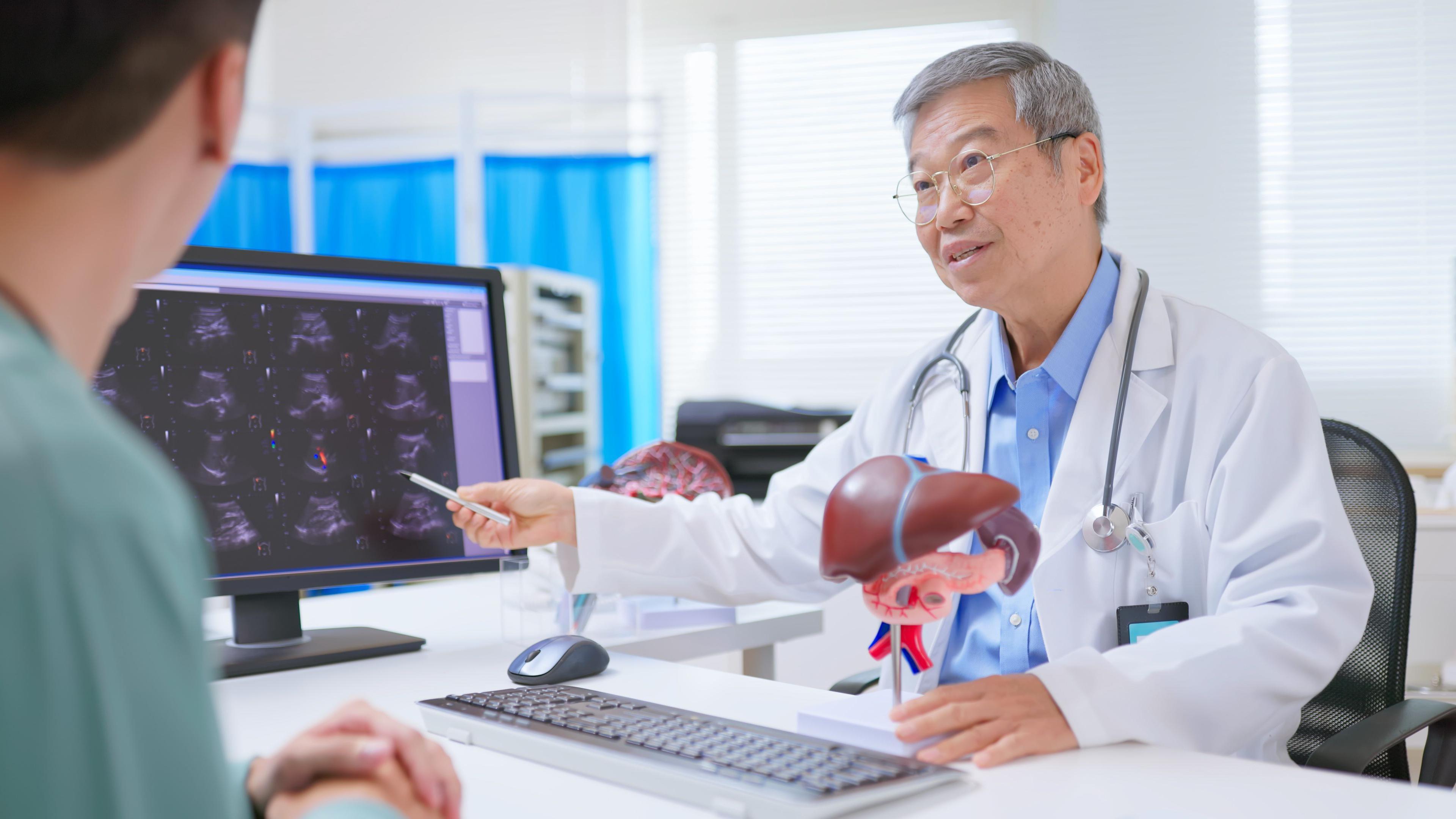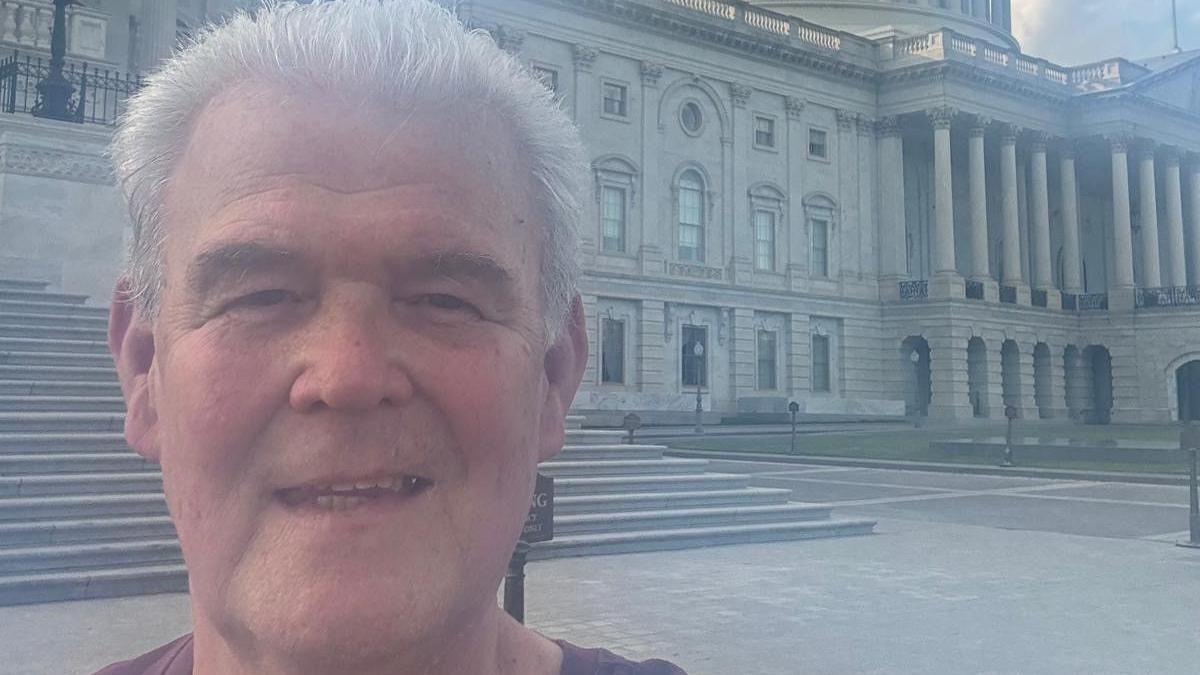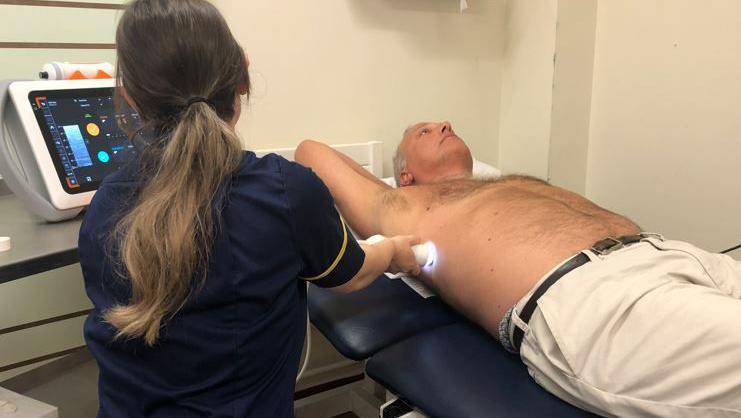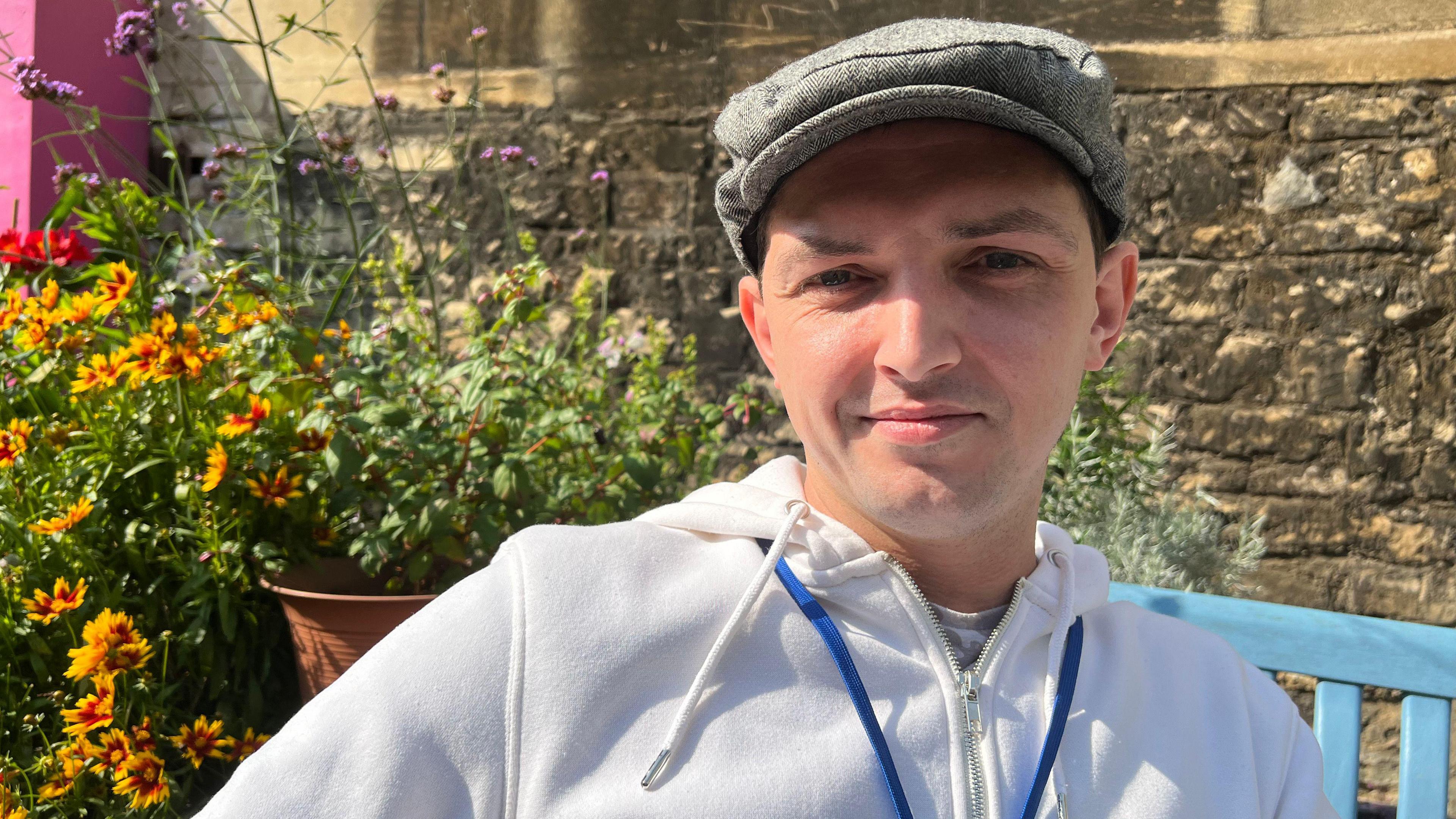NHS expands trial to spot liver disease early

A project to discover liver disease early is being expanded across the South West
- Published
A programme to spot patients at risk of liver disease is being rolled out across the South West of England.
The £1.4m Somerset NHS Foundation Trust project analysed the blood of 700,000 people over the age of 18 for markers of liver disease, and identified about 700 patients with problems.
The programme has now received funding from NHS England to roll it out across the region.
Peter Ernest from Taunton is a liver patient who was treated in the town during lockdown. He said: "The liver is known as the quiet killer. You don't know you have liver disease unless you have scans or tests."
Mr Ernest found out he had liver disease through a routine check at Musgrove Park Hospital in 2021.
"They found I had a fatty liver. I thought: I'm a bit overweight, fatty liver, didn't really register anything," Mr Ernest said.

Peter Ernest has recovered from liver disease which he calls the "quiet killer"
He was sent to the hospital in Bristol, then London, where he had a liver dissection.
"I didn't feel ill, I wouldn't believe it if someone told me I had liver disease," he added.
"You can go through life with liver disease and maybe pick it up too late."
'Positive response'
Dr Katie Denver, a clinical research fellow at Somerset NHS Foundation Trust who is working on the programme, said: "Liver disease is actually very common.
"We're very aware of heart disease and cancer. Liver disease never gets the same attention but it's very common," Ms Denver said.
The programme uses blood tests the hospital already has from people who have come in for unrelated issues.
Correction - 6 November 2025: A previous version of this story said the trial used AI to help spot those at risk. This is not the case and we have removed the references.
"So far we've written letters to 700 people. From those, hundreds of people have engaged, have been started on treatments. We've had a very positive response," Ms Denver said.
Ms Denver added more letters will be sent out to people in the South West in the next few months.
Get in touch
Tell us which stories we should cover in Somerset
Follow BBC Somerset on Facebook, external and X, external. Send your story ideas to us on email or via WhatsApp on 0800 313 4630.
- Published13 November 2024

- Published20 September 2024

- Published4 February 2023
